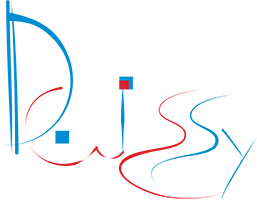CrAL
-
Info
Title Creative Audiovisual Lab for the promotion of critical thinking and media literacy
Acronym CrAL
Programme Erasmus+
Project Number 621357-EPP-1-2020-1-BE-EPPKA3-IPI-SOC-IN
Start – End Date 15/01/2021 – 14/01/2024
Duration 36 months
Action Social inclusion in the fields of education, training and youth
Funding Agency Funding Agency Education, Audiovisual and Culture Executive Agency, European Union
Total Project Funding €624.893,00
Project Homepage https://www.cral-lab.eu/
Status Ongoing
Description
Digital technologies have changed the way we see and understand the world, especially for young people. Their perception and interactions have been shaped by a society stimulated by audiovisual contents and the dynamics of the virtual dimension. The members of Generation Z are what we call “digital natives”, young people who grew up in the digital age, and even though they are in constant contact with technology and have access to an unlimited amount of information, they sometimes lack the abilities to analyse and evaluate the veracity of the messages they receive from the media.
In order to address the insufficient media literacy and provide them with the tools they need to understand the world they live in, to cultivate students’ critical thinking and help them understand the responsibility and the power of their voice, seven partners from Belgium, Croatia, Greece, Italy, Lithuania, and Spain have joined forces in the CrAL project. Their goal is to enhance critical thinking and media literacy among learners, parents, and educational staff.
The project will disseminate and scale up the good practice “Creative audiovisual writing and reading”, which has already been experimented in Italy, to five different education systems and contexts in Croatia, Greece, Italy, Lithuania, and Spain.
CrAL will address young people (aged 14-19) so they can reinterpret and lead the production of audiovisual contents. Secondary school teachers and trainers working in non-formal environments will be taught how to educate their students in the creative audiovisual reading, writing and production for the enhancement of their media literacy skills and critical thinking. Their parents and members of their community will also be involved in the project as active protagonists in order to maximize CrAL’s impact on a local, national and European level.
The project will facilitate the acquisition of digital skills among students such as active communication, collaboration, creativity, problem solving, critical thinking and self-confidence. It will also promote social inclusion of disadvantaged target groups. Young people will become active creators of solutions for social challenges, while disadvantaged youngsters (e.g., migrant students and second generations) will be supported in their social integration and value.
Specific objectives of the project are:
- To provide school teachers and trainers working in non-formal education with the necessary knowledge, competences and skills on audiovisual education and “Creative audiovisual writing and reading” methodology;
- To empower students (aged 14-19) in the critical reinterpretation and production of audiovisual contents, promoting the acquisition of critical thinking and media literacy competences and skills.
How will the project achieve it?
- Deliver an innovative training path for teachers and trainers to facilitate the transfer of the methodology to secondary schools and to the non-formal sector in other EU Countries;
- Produce the training course and multilingual and multimedia educational contents;
- Pilot the “Creative audiovisual writing and reading” methodology in five European countries through a three-level training (for tutors/teachers/students) leading to the production of audiovisual contents by young people;
- The project will involve 15 tutors trained in the transnational training, 60 teachers in a 5-week blended course; 250 students (50 per partner) in creation of audiovisual contents;
- Create an international Community of Practice and an online platform to exploit the results and maximise the impact of the project. The platform will contain all audiovisual products developed during the pilot experimentation;
- Produce policy recommendations on the use of audiovisual contents for inclusive education.
Project Outcomes
The project will:
- Promote the use of audiovisual education in different European didactic contexts. Tutors, teachers, and students will be educated in the “Creative audiovisual writing and reading” CrAL methodology through a three-level training (for tutors/teachers/students)
- Facilitate the acquisition of digital skills among students such as active communication, collaboration, creativity, problem solving, critical thinking and self-confidence.
- Promote social inclusion of disadvantaged target groups. Young people will become active creators of solutions for social challenges, while disadvantaged youngsters (e.g. migrant students and second generations) will be supported in their social integration and value recognition.
- Increase public awareness (among schools, education systems, parents, communities, etc.) on the value of audiovisual language as a mean to promote critical thinking and social inclusion.
- Involve education, training public authorities and key stakeholders from each project country to contribute to the dissemination and upscaling process.
- Organize two multiplier events in each piloting project country involving at least 20 participants from local community members, parents, policy-makers and key stakeholders in the education and training field and civil society organizations, in order to establish an open dialogue among participants and stimulate cross-sectoral cooperation.
- Produce policy recommendations on the use of audiovisual contents for inclusive education, which will be presented during the final international workshop in Brussels and will aim to reach policy makers at a European level.
Publicity
